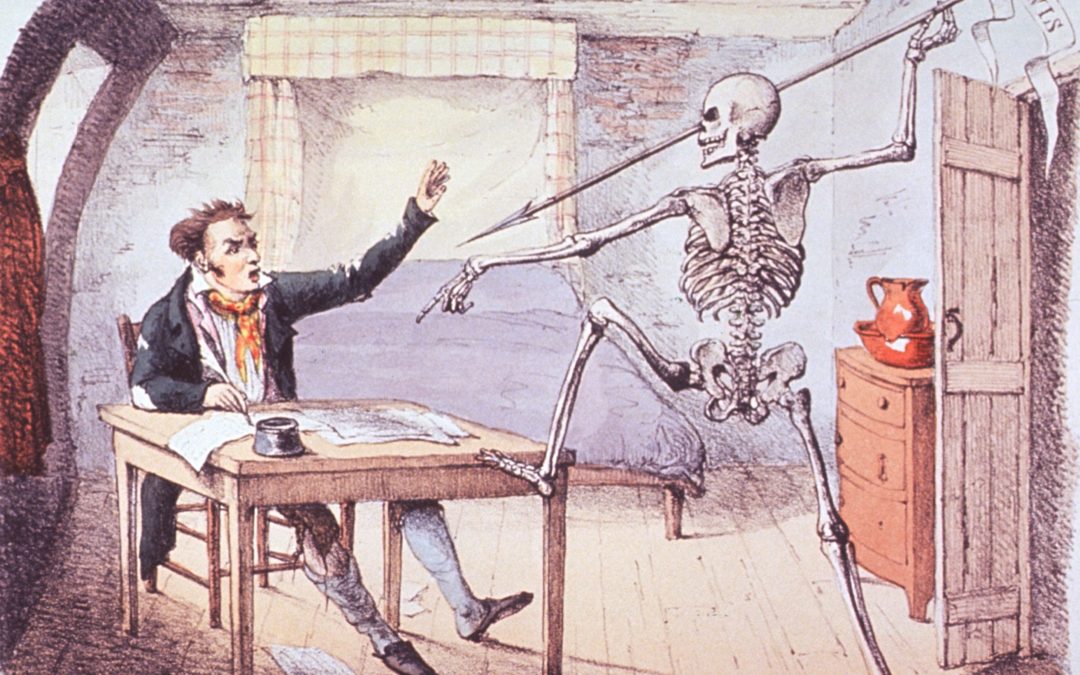Who owns a text? Whenever you read a book, or any text for that matter, someone somewhere decided to share it with the wider world. There may have been certain intentions that the author hoped to convey. However, there is always the question who the text belongs to: the author or the reader? Who gives meaning to it?
There has been a significant shift between looking at literature in school and analysing it at university. In school, it came always down to the question about authorial intent. What was the author’s intention? ==> What is the right answer?
I first came into contact with the concept of the death of the author in my introductory seminar into literature within my first bachelor’s semester. Without anyone explicitly explaining the concept, I was taught that authorial intent isn’t the be-all and end-all it was portrayed as in school.
A number of people may interpret the same text and they may extract differing, even conflicting interpretations. Yet, even conflicting interpretations may be “correct” at the same time, provided there are valid reasons that point to each interpretation.
French literary critic Roland Barthes introduced the concept in his essay The Death of the Author: „Once the Author is gone, the claim to ‚decipher‘ a text becomes quite useless. To give an Author to a text is to impose upon that text a stop clause, to furnish it with a final signification, to close the writing.“
Barthes, Roland “The Death of the Author” (1967), translated by Richard Howard
The central claim of the concept can be expressed thus:
It is not authors who infuse texts with objective meaning, which can be extracted. It is readers who, upon being confronted with a text, give it meaning.
Within our capitalist society, ascribing ownership of a text to the reader rather than the author may seem problematic. After all, before the literal death of an author, they maintain the rights to their “creation” for several decades. These rights will even be handed down to the author’s next of kin. If we say that an author does not have more authority over a text than a reader once the text is published, then nothing an author decides to add or retract retroactively could truly be considered “canon” to the text, unless the new text is considered a prequel or sequel to the original text.
A recent example of this can be seen by looking at J. K. Rowling. Although the Harry Potter novels have been exhaustively discussed, it is worth mentioning them with the concept of the death of the author in mind. Despite not being part of any canonical text within the Harry Potter books, Rowling has added a variety of „facts“ about the story via social media. One prominent example is the information that one of the central figures within the books, Dumbledore, is gay. Had this been part of the books, be that explicit or implicit, this could have been seen as an important representation in a prominent medium within the late 90s and early 2000s. Simply saying „oh, by the way: that major character? He was gay“ does not necessarily have the same effect. This particular example found its culmination when it became known that the author described the relationship between Dumbledore and the character Grindelwald (who could also be seen in the films „Fantastic Beasts: The Crimes of Grindelwald“) as „incredibly intense“, especially since she also alluded to the sexual side of their relationship. If this is such an integral part of the story why is it not part of the story? It is neither shown nor mentioned.
Who owns a text? Are these exclamations by the author part of the canon? Or do they hold the same authority as fanfiction? And what does all of this imply for everyday life as a student anyway?
The main point to take away is that when you analyse a text, it is not always necessary to try to figure out what an author may or may not have intended in order to figure out the meaning of a text. While it may certainly be helpful to understand under which circumstances a text was written, the ultimate meaning cannot be dictated by an author:
the reader is the very space in which are inscribed, without any being lost, all the citations a writing consists of; the unity of a text is not in its origin, it is in its destination; but this destination can no longer be personal: the reader is a man without history, without biography, without psychology; he is only that someone who holds gathered into a single field all the paths of which the text is constituted.
Barthes, Roland “The Death of the Author” (1967), translated by Richard Howard
Understanding that it is during the process of reading that a text is imparted its meaning, or at least some of it, by the reader may be a helpful thought to consider. It is to me.



